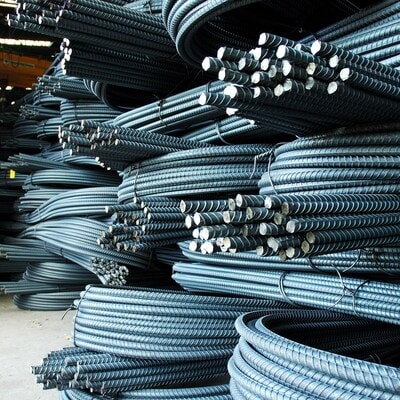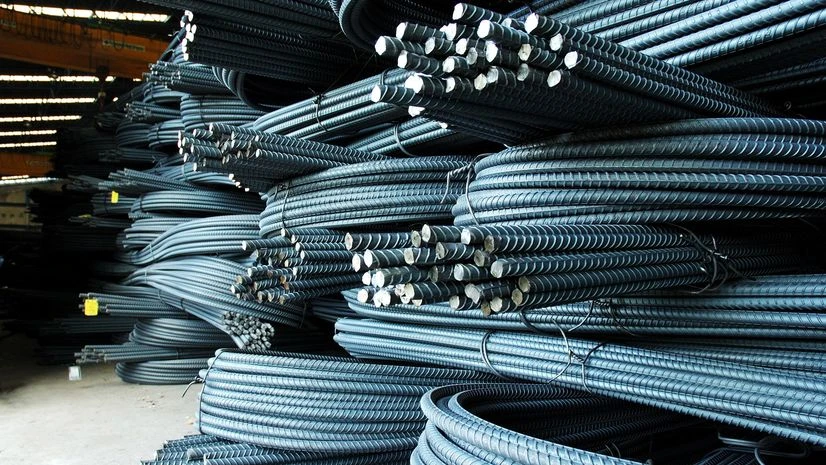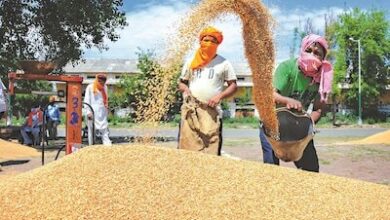Chinese stimulus to real estate checks steel price slide, worries persist | News

)
Steel prices had been on a downward trend, and experts agree that China’s stimulus has boosted global sentiment | (Photo: Shutterstock)
China’s stimulus to the property market has arrested the fall in steel prices. However, it is unlikely to stem its exports to the world, including India, according to experts.
According to data from BigMint, a market intelligence and price reporting firm, since the third week of September, prices of hot-rolled coil (HRC) – a benchmark for flat steel – increased by about Rs 1,500 per tonne ex-Mumbai to Rs 48,600 per tonne.
Click here to connect with us on WhatsApp
The increase comes as China announced a monetary stimulus package and property market measures, including mortgage rate cuts, in late September.
A BigMint analyst said China’s latest economic stimulus measures provided a short-term boost to steel prices, driven by infrastructure spending and interest rate cuts.
However, despite early optimism, the overall market response has been cautious, with sustained price recovery hinging on further policy actions and improvements in real estate demand, the analyst added.
In long steel, rebar prices have increased by Rs 3,600 per tonne ex-Mumbai to Rs 53,600 per tonne, BigMint data showed. This could be due to the revival of construction activities post-monsoon.
Steel prices had been on a downward trend, and experts agree that China’s stimulus has boosted global sentiment. In the last fortnight, the world’s second-largest steelmaker, ArcelorMittal, announced a price increase.
Sumit Jhunjhunwala, assistant vice president, ICRA, said that steel prices in China had increased by 16 per cent since the announcement of the stimulus package. “This will drive prices globally. In India, prices have increased by about 4 to 5 per cent, even though some increase was expected post-monsoon.”
The big question, however, is whether this will be sustained.
Sehul Bhatt, director of research at CRISIL Market Intelligence and Analytics, said the positive sentiment surrounding the stimulus led traders to increase steel prices. “However, this price rally will be short-lived, as the impact of the positive sentiment fades and supply and demand rebalance. The recent price hike has also narrowed the price differential between imported and domestically manufactured flat steel,” he added.
Even though sentiment has picked up and helped push prices higher in the domestic market, steel producers are concerned that it will not help check imports into India, which have been negatively impacting domestic prices.
China’s steel exports, currently between 110 and 115 million tonnes, are expected to remain high, according to Ranjan Dhar, director and vice president – sales & marketing, ArcelorMittal Nippon Steel India (AM/NS India). “While China’s stimulus measures may boost domestic consumption, particularly of long steel, the country is unlikely to significantly curb exports to the global market unless it reduces production by 5 to 7 per cent.”
“Global steel markets are becoming increasingly competitive. Countries are either imposing trade barriers or increasing their own production, reducing the demand for Chinese steel. This makes India, a rapidly growing market, more vulnerable. India must proactively implement safeguard measures to reduce its reliance on imports and promote domestic steel production to ensure ‘Aatmanirbharta’ and long-term competitiveness,” Dhar added.
Another major steel producer said it was imperative for India to take action on imports. “Otherwise, India will become a dumping ground because surplus steel from the rest of the world will flow into the country, as other economies are still facing challenges.”
Alok Sahay, secretary-general of the Indian Steel Association, pointed out that Chinese exports are a concern for all economies. “The US, Canada, and the European Union have taken concrete measures by imposing a 25 per cent safeguard duty, and now Turkey has levied up to 43 per cent of dumping duty.”
“India has no safeguard measures against the surge in imports from China. We are exposed to the trade distortion caused by China,” he added.
First Published: Oct 16 2024 | 1:35 PM IST




